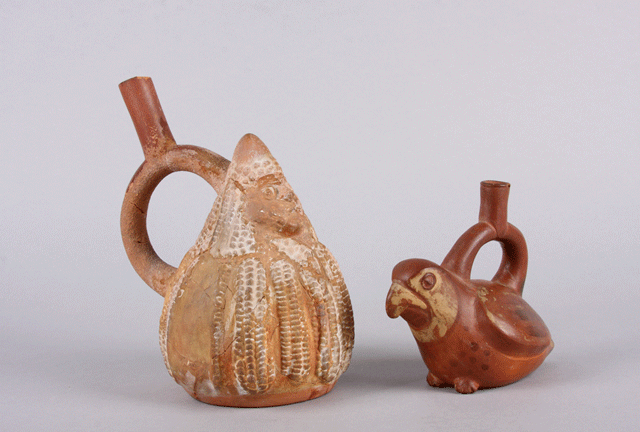
Photograph by B. Bernard

Photograph by B. Bernard
Stirrup-spout jars are Proto-Chimú inventions. They combined elements
from highland Peru with basic Moche ware. These two Proto-Chimú or
Transitional vessels represent an essentially Moche tradition (red ware with
yellow and black slip decoration) with a few Chimú additions (stirrup
spouts, absence of handles except tubular ones related to the stirrup,
abstraction). The subsequent development of Chimú style shows a
tendency to assimilate stylistic traits derived from practically every part
and period of Peru. The eclectic combination of elements inherited from
Proto-Chimú demonstrates the artists' ability to utilize and
manipulate elements of alien origin.
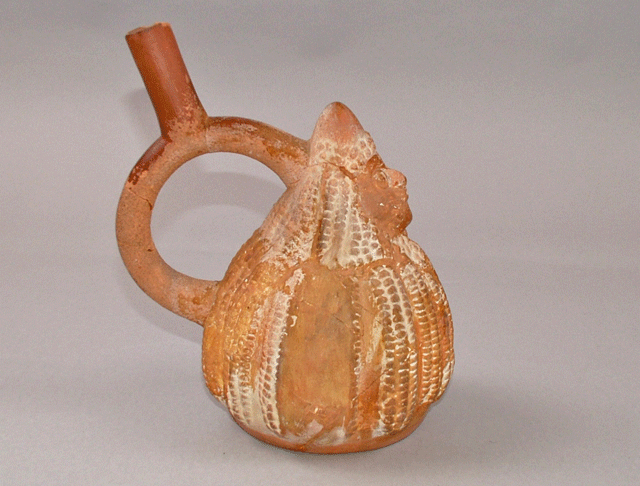
37.9.9, mold-made stirrup-spout jar with "corn man"
Proto-Chimú (A.D. 900)
From Chimbote, between the Santa and Nepeña River Valleys
Gift of Watt Stewart
The jar shown above combines a realistic representation of corn (maize) and simplfied features of a human face into one of many Chimú deities. The jar is 18 centimeters (7 inches) tall, not including the stirrup spout. A second picture, below, shows the corn combs more clearly.
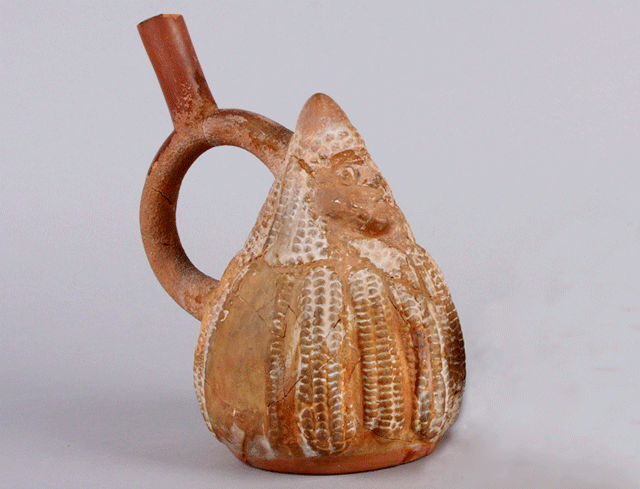
Photograph by B. Bernard
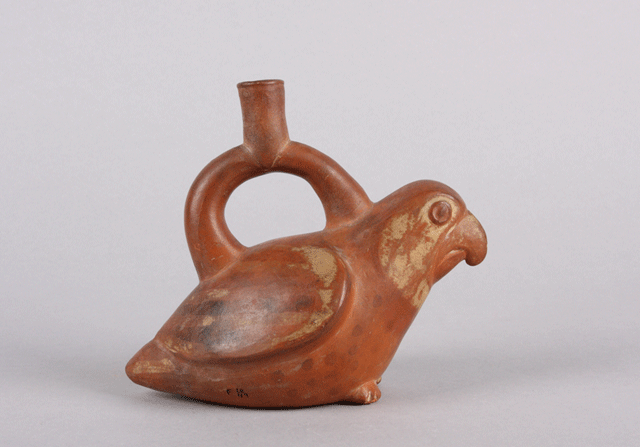
57.5.8, mold-made stirrup-spout jar in form of parrot
Proto-Chimú or Transitional Style (A.D. 900)
Exchange item from the University of California
Chimú representations of animals and birds show a sureness of imagination. Parrots were an especially popular subject. This jar is 14 centimeters (5 1/2 inches) tall. The next photograph shows the jar from a different angle.
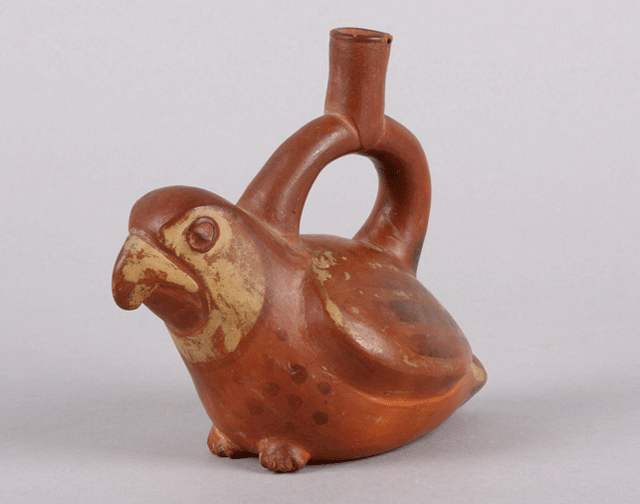
Photograph by B. Bernard
To return to the thumbnail on the previous page, click here.
All content copyright © Maxwell Museum of Anthropology, University of New Mexico. High-resolution versions of photographs may be ordered from the Maxwell Museum's photo archives. Please make note of the catalogue numbers. For more information please visit the photo archives web page
Page last revised on March 7, 2011. Please report problems to toh@unm.edu